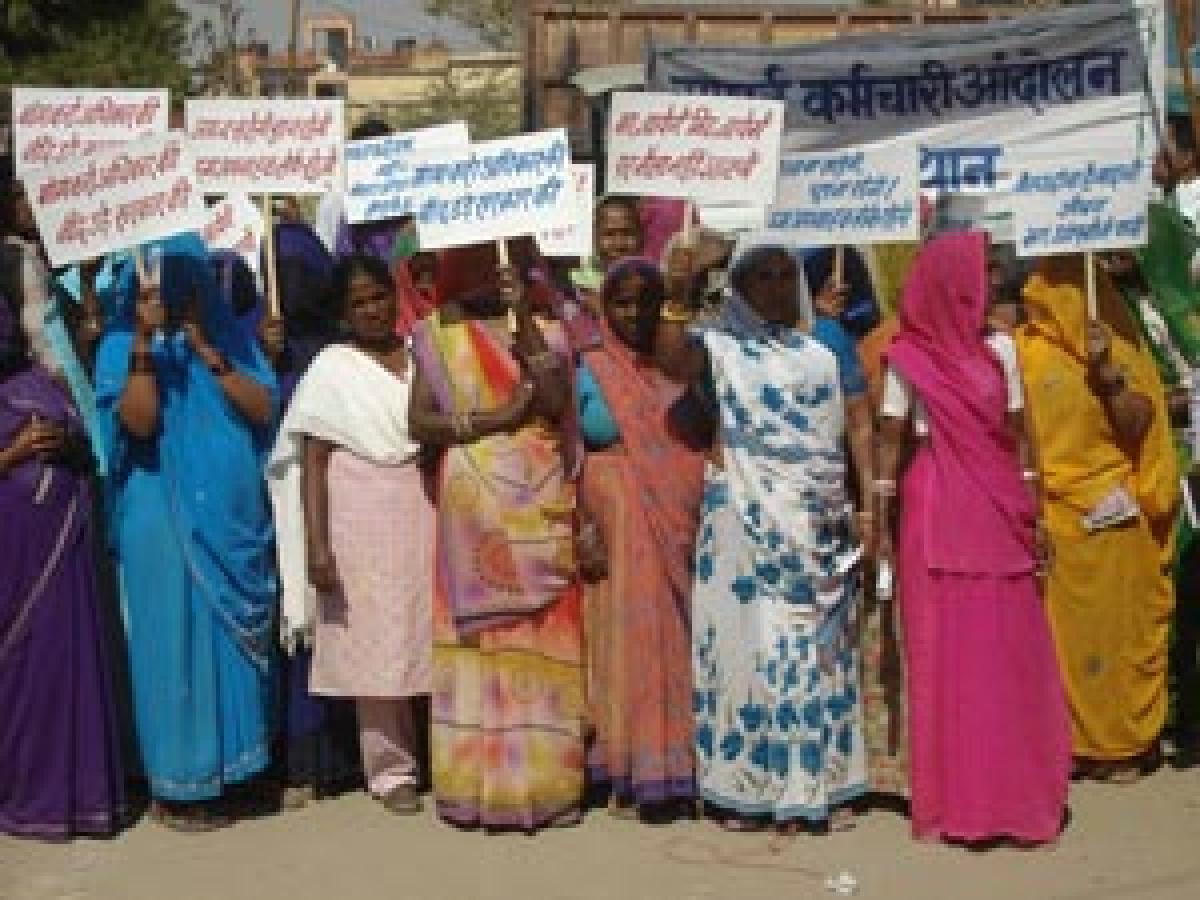Live
- Bangladesh court rejects bail plea of Hindu priest Chinmoy Krishna Das, sends him to jail
- President Murmu Marks 75 Years of Indian Constitution with Commemorative Coin and Stamp
- Three dead in sofa manufacturing factory fire in Greater Noida
- Actor Sri Tej Accused of Cheating by Woman
- Constitution Day 2024: Celebrating India's Foundational Document
- 'When you lose, EVMs are tampered with; when you win, EVMs are fine', SC dismisses PIL
- India signs Final Act of Riyadh Design Law Treaty
- Oppn leaders protest outside Bihar Assembly over reservation, smart meter issues
- Best performances of Nandita Das that prove she’s an acting powerhouse
- Top 5 Plumbing Tips for Better Water Conservation
Just In

SKA has a strong network of over 6,000 volunteers; they initiate discussions to help scavengers understand their rights and exit options, available rehabilitation schemes, and other financial support sources.
Till the last manual scavenger quits
SKA has a strong network of over 6,000 volunteers; they initiate discussions to help scavengers understand their rights and exit options, available rehabilitation schemes, and other financial support sources.
Born to parents of the Thoti caste, a historically discriminated against and untouchable caste in India, Bezwada Wilson was witness to the troubles of scavengers ever since he was a child. His father was a manual scavenger, as was his brother who worked with Indian Railways for a few years.
“I was 13 when I discovered that my parents and my brother picked human waste for a living. That was a shocking revelation for me. My friends in school would tease me. When I asked my parents what they did for a living they would try to hide it from me. But when I finally became sure of our background, I wanted to die,” he says.
As Wilson grew older, he graduated in political science and became more involved in various youth related programs. He observed that many kids drop out of school and end up becoming scavengers.
Born and brought up in a Dalit community in Karnataka, Wilson decided to eradicate this inhuman practice from its very roots. Manual scavenging is still in practice despite the ban in 1993 as per ‘The Employment of Manual Scavenging and Construction of Dry Latrines (Prohibition) Act, 1993.’
Dedicated to working for the betterment of this community, which is engaged in an occupation that involves cleaning dry latrines and carrying human excreta, Wilson started a war against employing people as scavengers.
In 1995, he kick started the Safai Karmchari Andolan (SKA) to liberate people from this degrading occupation and enable them to live with dignity. Started in Karnataka, the movement is now active in 25 states of India.
From organising rallies, spreading awareness, mobilizing people, and helping scavengers get better jobs, Wilson has left no stone unturned to empower lakhs of people who are still involved in manual scavenging.
“The biggest challenge is that the community is so embarrassed that they don’t even want to talk about it. Bringing them together is the first step,” he says. Narayanamma, who too was a manual scavenger once, is a perfect example of the impact SKA has created. After she became associated with SKA, she not only got the courage to say no to this demeaning job but also found new livelihood options like driving an e-rickshaw.
In 2003, Wilson filed a Public Interest Litigation (PIL) in the Supreme Court, showing that all Indian states, as well as the government departments of Railways, Defence, Judiciary and Education, were violators of the Manual Scavenging Prohibition Act. The PIL brought the issue sharply into focus.
Over 15 lakh people were involved in manual scavenging in 1996. It is due to Wilson’s tireless efforts that the numbers came down to only 2 lakhs in 2013. And he is determined to bring this figure down to zero.
Many other organizations and states have replicated SKA’s model. Those who have quit this filthy job have been rehabilitated through other employment opportunities, mainly in the field of sanitation.
“Because they have done this for their entire life, they cannot think of doing anything else. Even if they want to get out of this, they are unable to do so. They need a push and SKA is trying to give them that,” Wilson says.
Wilson’s fight does not end here. He wants to eliminate scavenging and sanitation work from the Dalit community and abolish the caste system that still prevails in the country.
“I will make sure that not a single person in the country has to do a job like this,” he concludes. With Wilson’s continuous efforts and policy intervention, we hope to see this ‘national shame’ soon fade away from India. Courtesy: www.thebetterindia.com

© 2024 Hyderabad Media House Limited/The Hans India. All rights reserved. Powered by hocalwire.com







